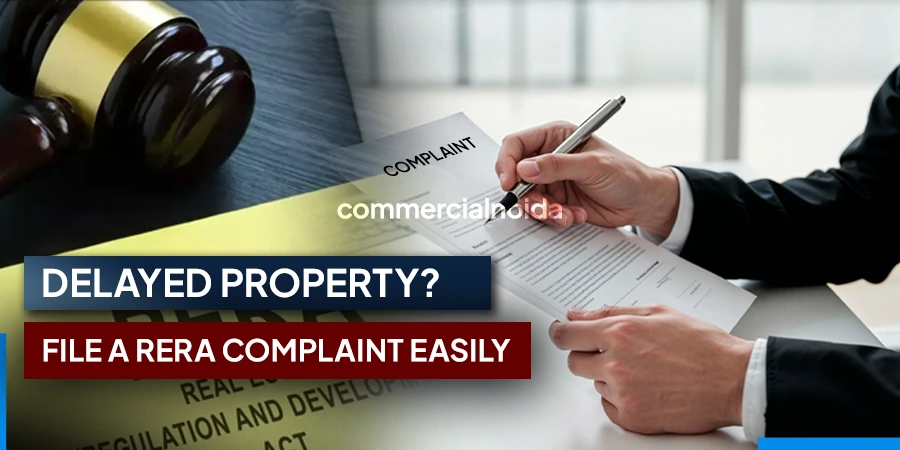Why is No Objection Certificate (NOC) Required for Property?

No Objection Certificate (NOC) for Property: Everything You Need to Know
While dealing with property transactions there are various documents you might have come across. One such document is a No Objection Certificate (NOC). However, the term NOC is prevalent in various industries but in real estate it has a dynamic use case.
Whether you are purchasing a new apartment, selling or mortgaging an inherited property or renovating your own house, presenting an NOC to the concerned authorities is not just a requirement but also provides a sense of security for those involved.
As it has multiple uses in real estate, it’s important to understand its purpose to avoid legal conflicts as well as future disputes. Let's explore.
What is a No Objection Certificate (NOC)?
An NOC is a formal permission or clearance issued by an authority or a person. It states that they have no objections to the mentioned activity or transaction and all necessary obligations have been fulfilled.
Why is NOC required for property?
It basically is a documented proof that one can proceed with the property transfer and no dues are pending. It can serve as proof in court and help avoid future conflicts.
Digital NOC
An E-NOC provides transparent verification procedures and reduces human errors and intervention. Some states and cities have further simplified the procedure by linking multiple departments under one integrated platform. It is just as valid as a physical NOC.
Different situations that require NOCs in Real Estate
In order to apply for one, you need to first understand the various types of NOC you will require according to each unique situation.
Property Transfers – According to Section 21 of the Registration Act of 1908, an NOC for the transfer of immovable property or land should be issued. When a property is sold or purchased, an NOC is issued by the Deputy Commissioner after the required documents are submitted at the circle office of the area. Only after that the property registration can be completed.
Inheritors – In case of inheritance after death, an NOC is required to be issued by the other legal heirs. They must consent to any property transfers or loans taken out on their property.
Collector – If a property is leased by the state authority (and not under freehold), an NOC is issued by the Collector that ensures that the property is being transferred or mortgaged transparently and in compliance with the state authority.
For example, in Noida, you need to present an NOC by the Noida Authority in order to transfer the land.
Banks or Lenders – The bank still remains a legal stakeholder of the property until the loan is fully repaid. Therefore, to complete the registration process, the bank needs to issue an NOC that conveys that all dues have been cleared.
Municipality Authority – An NOC from the local municipal authority verifies that no illegal construction or zoning violations have taken place which safeguards from future demolition. It also certifies that there are no pending taxes to be paid.
Developer – Under the RERA (Real Estate and Development) Act, a developer should obtain NOCs from at least two-thirds of the homebuyers before transferring responsibility or assigning a new developer. This ensures that the developer does not evade responsibility and all commitments made to homebuyers are fulfilled.
Society/Housing Association NOCs – In a registered Indian Housing Society, one has to obtain an NOC before transfer of any property is done. This certifies that there are no maintenance dues or pending property charges and that the society authority consents to the transfer.
Fire Department Authority – For commercial properties, high rise buildings and even some residential properties an NOC from the fire department conveys that the property is in compliance with fire safety regulations.
There are various other NOCs that can be required in specific situations. Some of them are: Electricity Board and Water Supply Authority(for pending dues), Pollution Control Board (for properties near industrial zones), Airport Authority (for properties near airports), or Heritage Committee (for properties in heritage zones).
Documents required for a NOC
All different purposes require a unique set of documents. It might include:
• Identity proof (Buyer & Seller)
• Citizenship Proof (Passport or Voter ID) and PAN Card
• Tax receipts
• Latest Income Statement
• Property ownership documents or Land Patta
• Property approved plan
• Payment receipts for relevant due
• Statement of Consideration (Flat Value & Land Apportionment)
• Affidavit of Buyer & Seller (or Power of Attorney Holder)
• Power of Attorney Copy (if applicable)
• Affidavit Supporting POA Holder (from Pattadar)
• Co-partner NOC (for Flats)
• Municipality/Town Committee Receipts & Occupancy Certificate (for Flats)
How to get NOC in real estate for various purposes?
You should follow these steps to issue an NOC:
1. The first thing you need to do is to determine which NOCs you require for your specific purpose. Take help from an agent or a lawyer because if you miss any step, the registration process will get complicated.
2. Prepare your required documents accordingly.
3. Prepare a No Objection Certificate (NOC) draft on Word Document.
4. Buy a non-judicial e-stamp paper available at a sub-registrar office, court, or cooperative bank. Print the NOC on this stamp paper.
5. Take it to a notary along with the required documents. Pay the application fees. The NOC will be signed and sealed by the notary.
6. After you get your NOC, don't forget to verify the details on the certificate and make copies!
The general procedure can be time consuming. There can be delays due to misplacement of documents or inadequate processing.This is why you should consider applying for a Digital NOC.
Conclusion
Property laws and procedures continue to evolve. This is why understanding and obtaining NOC requires research and a careful approach. Forward thinking buyers understand that this document is more than just a formality.
It safeguards the future of their property and ensures accountability during real estate transactions. As it is one of the most significant investments in one’s life you should go make that extra effort to secure it.



























































































































.webp)

































































































.webp)
















































































.webp)
































































































